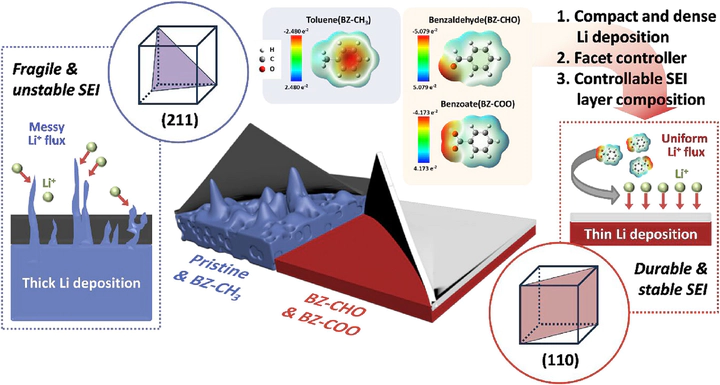Tuning Interface Dynamics of Benzene-based Molecular Dipoles for High Capacity and Long Lifespan in Lithium Metal Batteries

Abstract
Lithium metal batteries (LMBs), which possess the lowest reduction potential and exceptional capacity, have long been regarded as the ultimate solution for realizing ultrahigh energy storage systems. However, dendritic Li formation poses significant challenges, leading to performance degradation and safety hazards. This study emphasizes the importance of controlling the functional edge structures of benzene-derived molecular electrolyte additives to achieve rapid and long-term LMB performance, thereby proposing benzoate sodium salt (BZ-COO) as a promising candidate. Finally, Li-Li symmetric cells employing BZ─COO exhibit exceptional cycling performance over 1600 cycles even under harsh conditions (5 mA cm−2), outperforming benzene additives with ─CH3 or ─CHO substituents. This study provides a novel perspective on the development of surface flattening electrolyte additives for rapid operation and extended lifespan of LMBs.